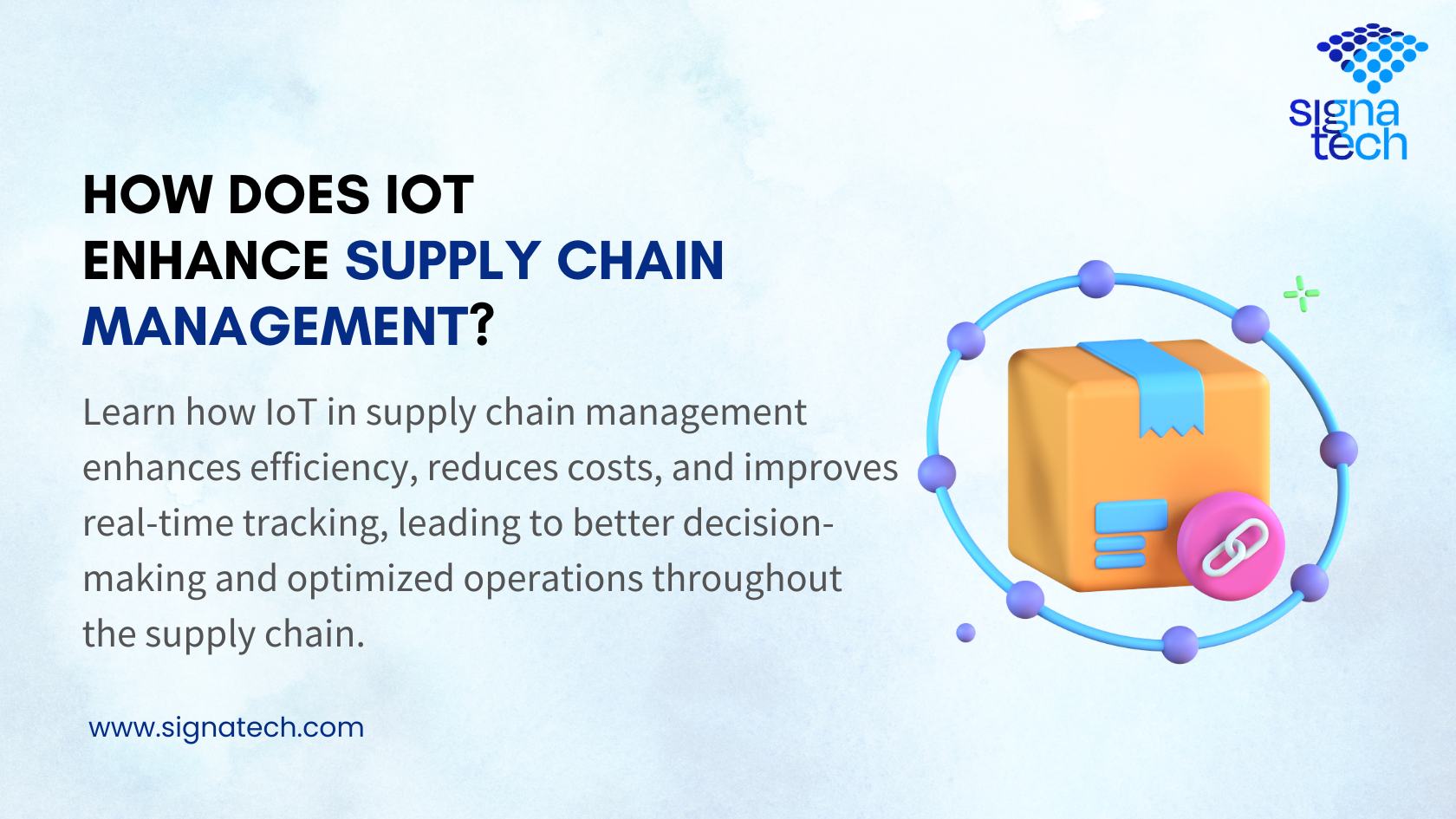In today’s rapidly evolving business landscape, the Internet of Things (IoT) is revolutionizing supply chain management. By integrating IoT technology, companies can optimize their operations, improve efficiency, and stay ahead of the competition. This blog explores how IoT in supply chain management enhances efficiency and why it’s a game-changer for businesses worldwide.
Introduction to IoT in Supply Chain
The Internet of Things (IoT) refers to the network of interconnected devices that communicate and share data with each other. In supply chain management, IoT enables real-time monitoring, data collection, and automation, which are critical for efficient and effective operations.
The Role of IoT in Supply Chain Management
IoT technology plays a crucial role in supply chain management by providing real-time data, improving visibility, and enabling better decision-making. Let’s delve into the specific ways IoT enhances various aspects of the supply chain.
Real-time Tracking with IoT
One of the most significant benefits of IoT in supply chain management is real-time tracking. IoT devices, such as GPS trackers and RFID tags, provide continuous monitoring of goods in transit. This real-time data allows companies to track shipments, monitor conditions, and ensure timely delivery.
- Improved delivery times
- Enhanced customer satisfaction
- Reduced risk of lost or damaged goods
IoT and Inventory Management
Effective inventory management is crucial for any supply chain. IoT devices help companies maintain optimal inventory levels by providing accurate, real-time data on stock levels. This data-driven approach minimizes overstocking and stockouts, leading to cost savings and improved efficiency.
- Automated stock replenishment
- Reduced inventory holding costs
- Improved order fulfillment rates
Supply Chain Automation with IoT
Automation is a key aspect of modern supply chain management. IoT devices enable automated processes, reducing the need for manual intervention and minimizing human error. This leads to faster, more efficient operations and allows employees to focus on higher-value tasks.
- Automated order processing
- Enhanced warehouse operations
- Streamlined logistics and transportation
Smart Logistics with IoT
IoT technology transforms logistics by providing real-time data on vehicle locations, traffic conditions, and environmental factors. This information helps companies optimize routes, reduce fuel consumption, and improve delivery times.
- Optimized route planning
- Reduced operational costs
- Increased fleet efficiency
IoT Supply Chain Optimization
IoT technology enables companies to optimize their supply chain operations by providing valuable insights into various aspects of the process. From production to delivery, IoT devices collect and analyze data, helping companies identify areas for improvement and implement effective strategies.
- Enhanced demand forecasting
- Improved production planning
- Streamlined supply chain processes
IoT Devices in Logistics
The use of IoT devices in logistics is transforming the way goods are transported and managed. IoT sensors monitor various parameters such as temperature, humidity, and vibration, ensuring that goods are transported under optimal conditions.
- Real-time monitoring of goods
- Improved quality control
- Reduced risk of spoilage or damage
Digital Supply Chain with IoT
The integration of IoT in supply chain management creates a digital supply chain, where data flows seamlessly across all stages of the process. This digital transformation enhances visibility, improves collaboration, and enables better decision-making.
- Enhanced supply chain visibility
- Improved collaboration among stakeholders
- Data-driven decision-making
Benefits of IoT in Supply Chain
The benefits of IoT in supply chain management are numerous and far-reaching. By leveraging IoT technology, companies can achieve significant improvements in efficiency, cost savings, and customer satisfaction.
- Increased operational efficiency
- Reduced operational costs
- Enhanced customer satisfaction
Challenges and Solutions for IoT Implementation
While the benefits of IoT in supply chain management are clear, implementing IoT technology comes with its own set of challenges. These include data security concerns, integration with existing systems, and the cost of deployment. However, with careful planning and strategic implementation, these challenges can be effectively addressed.
- Ensuring data security and privacy
- Integrating IoT with legacy systems
- Managing deployment costs
Future Trends in IoT and Supply Chain Management
The future of IoT in supply chain management looks promising, with continuous advancements in technology and increasing adoption by businesses. Future trends include the use of artificial intelligence (AI) and machine learning (ML) to further enhance IoT capabilities and drive greater efficiency.
- AI and ML integration
- Advanced predictive analytics
- Increased use of autonomous vehicles
In conclusion, IoT is revolutionizing supply chain management by providing real-time data, improving efficiency, and enabling better decision-making. Companies that embrace IoT technology can optimize their operations, reduce costs, and enhance customer satisfaction. As IoT continues to evolve, its impact on supply chain management will only grow, making it an essential tool for businesses looking to stay competitive in the digital age.
Ready to transform your supply chain with IoT technology? Contact Signa Tech for innovative IoT and Embedded Systems solutions that will take your supply chain management to the next level. Our team of experts is here to help you harness the power of IoT and drive your business forward. Get in touch with us today to learn more!
